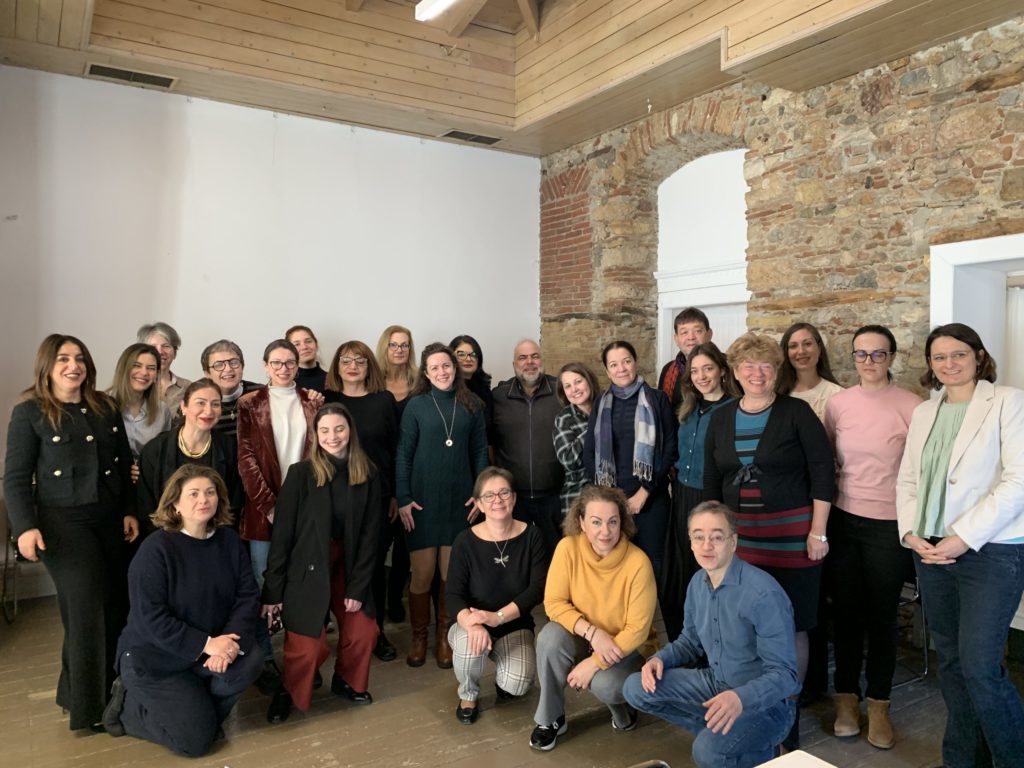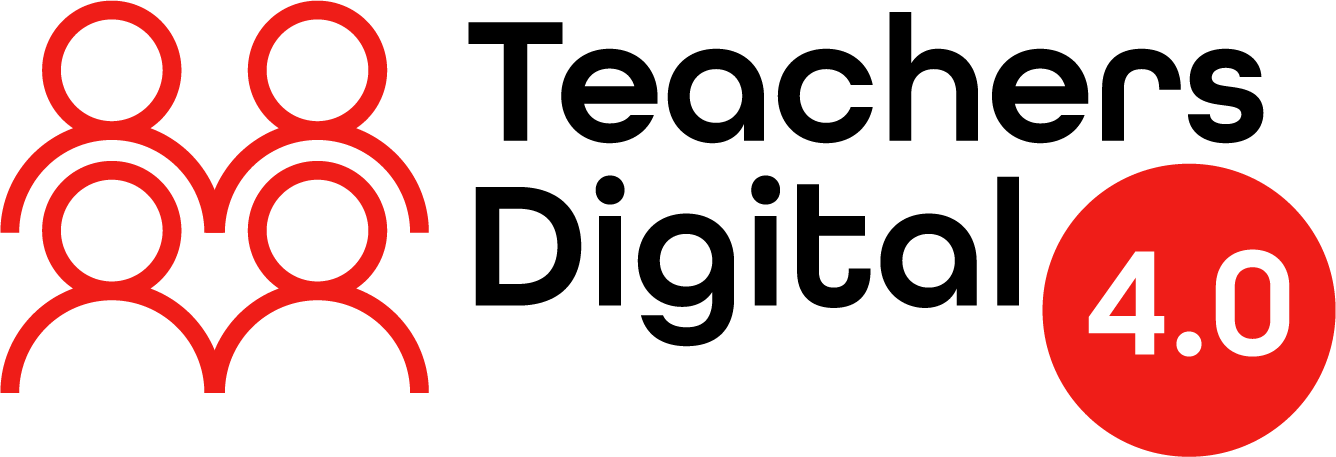
Sofia University “St. Kliment Ohridski” is one of the partners of the Teachers 4.0 Digital project that aims to empower teachers and educators to face the pressing societal issues of tackling disinformation and promoting digital [media] literacy in their classrooms.
The project is a large-scale capacity-building initiative that foresees the development and implementation of a comprehensive solution to these issues through:
– An initial teacher training programme to be implemented by different pedagogical departments of six major European universities in Bulgaria, Cyprus, Greece, Romania, Italy, and Poland;
– A continuous professional development programme to be offered by adult education providers,
– A policy impact through the participation of Ministries of Education and relevant public or regional authorities.

The first meeting of the project’s participants in Athens
Therefore, the project will develop a comprehensive curriculum to guide teachers and educators in appropriate ways to enhance their students’ skills and help them succeed in the digital age. A university course will be designed with focus on tackling disinformation and advancing the digital [media] literacy. And finally an e-learning platform will be developed to host and offer the Teachers 4.0 Digital course in a blended learning format, thus enabling to upskill thousands of primary and secondary school teachers and educational professionals.
The experts from Sofia University involved in the project include Prof. Madeleine Danov, Vice-Rector of Educational Affairs, Prof. Gergana Petkova, Dean of the Faculty of Classic and Modern Philology, Prof. Dimitar Vesselinov, Head of the Department of Information and In-Service Training of Teachers, Prof. Magdalena Panayotova, Expert in Vocational training, Prof. Milena Yordanova, Head of the Department of Methodology of Foreign Language Teaching, Prof. Danail Danov, Media Studies and Media Literacy specialist, Dr. Katya Stoyanova, Specialist in Media Literacy Training, and Dr. Simeon Hinkovski, IT expert and lecturer in Digital Tools.
Digital [media] literacy is among the main tools in tackling disinformation in our media-dependent world. Preparing children and students to be critically literate when assessing information online is key to develop their ability to identify and use trustful sources and benefit from the advantages of digital media. Media-literate citizens are the basis for democratic processes in modern societies, and therefore education that helps them to be open to the challenges of the ever-changing technological world will be essential for their future development.
Media pedagogy at Sofia University
Sofia University has a strong tradition of preparing students and teachers in media literacy. As from 1997, a MA program in media pedagogy was launched in the Faculty of Educational Studies and the Arts, to be followed in 2007 by a corresponding BA program (in Bulgarian and English), enabling the qualification of students in the field of media literacy. Currently, a PhD is being run to fulfill the growing needs of media pedagogy specialists in educating children, students, and adults.
The aim of the BA program Media Pedagogy and Artistic Communication is theoretical and practical preparation focused on acquiring knowledge, skills, and awareness of the digital environment and its algorithms in education and art. Students are expected to develop skills for diagnostics and professional advice: consultation and counseling on topical issues related to the organization and management of education. They should be able to apply these skills in their practice by adopting the educational tools of pedagogy, cultural and media studies. In their practical course of foreign language acquisition, they develop competencies using information and communication technologies for better interaction during classwork.
In a world where technology overwhelms personal and business life being media literate is crucial, and its development is a life-long process. The Teachers 4.0 Digital project integrates some key competencies to apply their development into cross-disciplinary curriculums at all levels of education. Teachers are supposed to help their students think critically and make reasonable and healthy decisions, so the project curricula provide an appropriate base of sources for such pedagogical interaction.
For example, the wide-range of tasks assigned to students will show them differences between facts and opinions and develop learners’ understanding of media and how it works. Being media literate gives safe opportunities to engage fully and creatively with the media world. Working with students who are supposed to be future creators and users of media products is the easiest way to form a huge pool of educators who will prepare children and students for the challenges of everyday life. Media literacy is not the only solution to disinformation, it is a fundamental part of a democratic society.
The importance of media literacy
Technological development in general, and digitalization in specific, has changed tremendously the reach and impact of disinformation nowadays. Internet connection and digital tools allow everyone, everywhere, and at any time to be a viewer or/ and creator of online content. So, education should help people understand their responsibility in the contemporary digital environment and assist them to better interact with the media with greater awareness, sticking to journalistic ethics and standards. Media regulation and media policies certainly help the proper development of democratic societies and, more importantly, developing digital [media] literacy – the key factor for understanding the complicated nature of the constantly evolving virtual space.
From such a perspective, digital [media] literacy appears to be the long-term solution that helps people everywhere to successfully cope with the challenges posed by the media world. The project is expected to create practical and easy-to-work guidelines and instructions that will help learners seek and find the most appropriate solutions in using the advantages of the abundance of online and offline information. Along with that, it would provide them with a better understanding of the challenges of the media tools and content, and consequently, with working means to effectively combat them.
In a nutshell, the Teachers 4.0 Digital project and its courses are designed not to give the right answers to certain problems, but rather to make people learn to think critically about all that they see, perceive, and process, by raising their overall level of digital [media] literacy as an effectively operating tool for social resilience.






